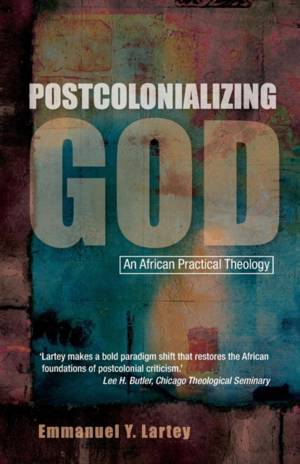
- Retrait gratuit dans votre magasin Club
- 7.000.000 titres dans notre catalogue
- Payer en toute sécurité
- Toujours un magasin près de chez vous
- Retrait gratuit dans votre magasin Club
- 7.000.000 titres dans notre catalogue
- Payer en toute sécurité
- Toujours un magasin près de chez vous
55,95 €
+ 111 points
Description
Postcolonializing God examines how African Christianity especially as a practical spirituality can be truly a postcolonial reality. The book offers thoughts as to how African Christians and by that token others who were colonial subjects, may practice a spirituality that bears the hallmarks of their authentic cultural heritage, even if that makes them distinctly different from Christians from the colonizing nations. There are themes in both the Hebrew Bible and the Christian Scriptures in which God's activities result in shattering hegemony, overthrowing the powerful, diversifying communities and affirming pluralism. These have by and large been ignored or downplayed in the formation of Christian communities by western and westernized Christians in Africa. The effect of this is that much of the practice of African Christians imitates that of a European Christianity of bygone times. Postcolonializing God charts a different course uplifting these ignored readings of scripture and identifying how they are expressed again by Africans who courageously seek through the practices of mysticism and African culture to portray a God whose actions liberate and diversify human experience. Postcolonializing God seeks to express the human diversity that seems to be the Creator's ongoing desire for the world and thereby to continue to manifest the manifold and diverse nature and wisdom of God. It is only as humans refuse to be created in the image of any other human beings, that the richness and complexity of the divine image will be more closely viewed throughout the world.
Spécifications
Parties prenantes
- Auteur(s) :
- Editeur:
Contenu
- Nombre de pages :
- 224
- Langue:
- Anglais
Caractéristiques
- EAN:
- 9780334029823
- Date de parution :
- 30-08-13
- Format:
- Livre broché
- Format numérique:
- Trade paperback (VS)
- Dimensions :
- 140 mm x 216 mm
- Poids :
- 195 g







